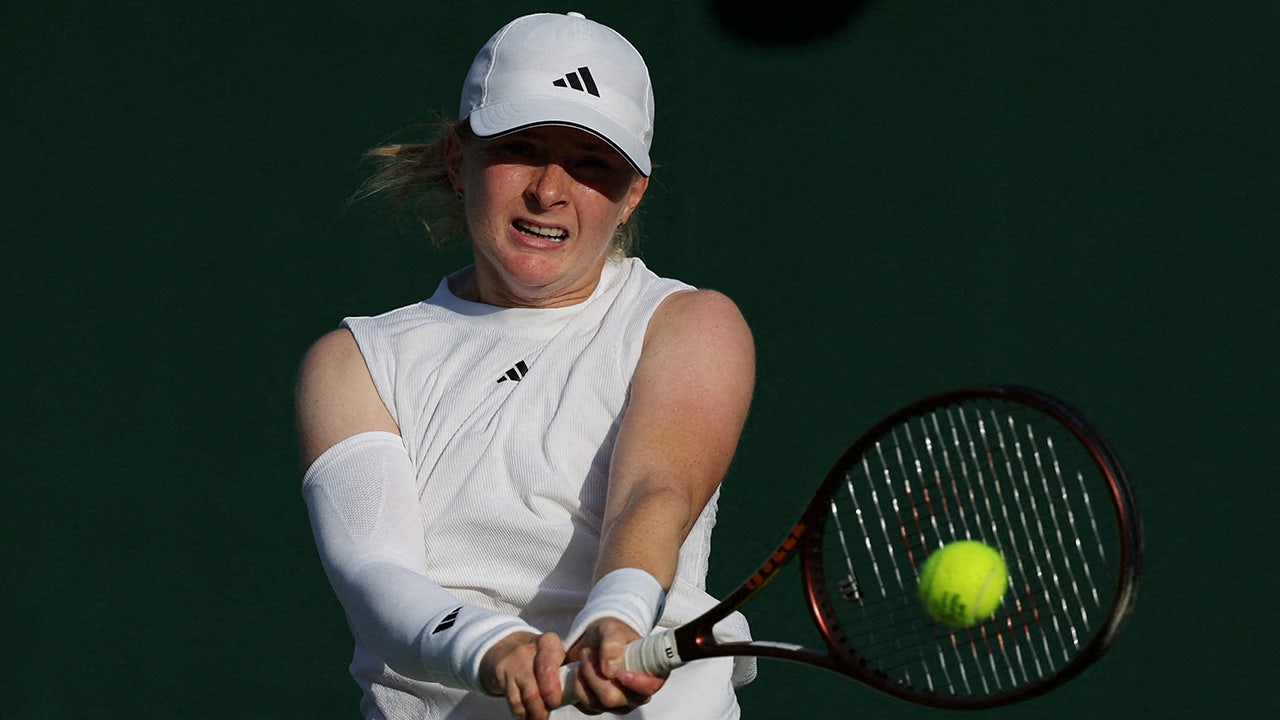
Ever since Jessie Diggins started collecting Olympic medals and crystal globes and staking her claim as the world’s top cross-country skier, she has made it clear that she wants her legacy to be something more than wins and appearances on podiums.
She wants to spawn a new generation of top American skiers, even among the men, who have yet to achieve the success that American women have.
Diggins could be on the cusp of doing that — with a major assist from Ben Ogden and Gus Schumacher, a couple of 24-year-olds who just might be on the verge of taking American cross-country skiing where it hasn’t been before.
These are the boys who have grown up watching Diggins’ every move, seeing her collect trophies and medals and, because of that, believing they could one day, too. These are the boys who are landing on podiums and fist-bumping Norwegians and Swedes at the end of races.
They hear half-drunk Scandinavians chant their names as they whiz by them on snowy tracks through the forests of Europe, especially Ogden. His mustache and full-gas-from-the-start style have caught the imagination of Nordic skiing fans in the sport’s spiritual centers in northern and central Europe. In American skiing circles, he gets compared to Steve Prefontaine, the mustachioed track star of the 1970s who ran like Ogden skis, with a caution-to-the-wind fearlessness that can hurt your lungs to watch.
It wasn’t long ago, like maybe even the summer before last, that Ogden, a 6-foot-4 Vermonter, would turn sheepish when people would ask him what he did for a living. Sometimes he would tell a half-truth, focusing on his studies as a part-time graduate student in mechanical engineering at the University of Vermont, as if racing on the World Cup circuit was a side hustle.
Not anymore.
“I’m just like, ‘I’m a skier, I’m a professional skier,’ straight up,” Ogden said during an interview this fall in New York, a couple of weeks before he and Schumacher headed to Europe for nearly five months. “I’m a lot more proud.”
After winning the coveted green bib as the fastest skier 23 and under during the 2022-23 season, Ogden got his first career podium in the first stage of last season’s Tour de Ski, a multi-race event that began with a sprint in Toblach, Italy, but COVID-19 and mononucleosis cut his season short. This season, he had the top qualification time in the sprint in Lillehammer, Norway, in early December, finished 15th overall in the Tour de Ski earlier this month and on Friday earned his second career World Cup podium with a third-place finish in the 10-kilometer skate race in Les Rousses, France.
As for Schumacher, last February the rugged Alaskan thrilled some 40,000 fans who lined the course of the 10-kilometer World Cup race in Minnesota, where he became the youngest American ever to win a World Cup and the first American male to win a distance event since 1983. He has three top-10 finishes already this season and is 12th in the distance standings.
“We used to celebrate top 30 (finishes), and the top 20 was crazy because you finish in the top 20, you get paid,” Schumacher said, sitting next to Ogden in a club chair at a midtown Manhattan hotel. “Now it’s top 10, because you finish top 10, you could have been on the podium, for sure. Depending how things go, you can win.”
In all, six American Nordic skiers landed on the podium during the 2023-24 season, including Ogden, Schumacher and Diggins, who won the crystal globe for the overall title for a second time in the past four seasons.
As recently as 2018, the U.S. was looking for its first Olympic medal in cross-country skiing since Bill Koch won the silver in the 30-kilometer race in 1976. That was the lone American cross-country medal until Diggins started collecting them, first with Kikkan Randall in a team sprint in 2018 and then in two individual races four years later.
At 33, Diggins has won so many of the big prizes in her sport. She could retire tomorrow and call it an epic career. During a conference call with reporters before the season, she said being a part of the U.S. team, which largely spends the winter traveling and living together because it can’t go home between races, plays a major role in her decision to keep coming back.
“I love what I do, and I love who I do it with,” Diggins said. “It is hard to be on the road for four months. The idea of doing this together with this team and going after relay podiums and (the) Nations Cup, things like that when we group together, that to me is so exciting.”
In years past, and even in other sports, some men could resist seeing a female champion as a role model. On the U.S. Nordic team, Diggins functions as a team captain, big sister, den mother and chief glitter application officer. During Schumacher’s first few years on the World Cup, Diggins put him up in the house she would rent during the Christmas break.
He and Ogden are feeling a little more grown up after last season, the first when they felt empowered enough to start making some decisions for themselves, figuring out what might work best for them as individuals. They got COVID-19 at the same time in January. After their period of isolation ended but before they were ready to start competing and training again, they decided to head to Spain for a few days of warmth and sun on the beaches near Valencia rather than hunkering down in chilly Switzerland.
They’ve even discussed doing that again this season as a kind of midseason break that their European competitors get every few weeks when they head home.
“Just to, like, get away from the racing scene a little bit,” Schumacher said.
As skiers, Ogden and Schumacher come at the sport from opposite ends. Ogden excels in shorter races. He’s never really seen a race where he doesn’t want to burn from the beginning. Schumacher is better at longer distances. He specializes in pacing, in thinking his way through races.
“I think I made good progress by being a patient racer,” he said. “I like to look around during a distance race, take in my surroundings and think — which is not to say you don’t do that,” he said, as he turned to Ogden.
Ogden immediately interrupted.
“No, I don’t,” he said.
As they have improved, their peer groups have shifted some. It is the nature of cross-country skiing, with so much time spent battling with competitors on sometimes woodsy, isolated trails that you end up being most friendly with the people you finish with.
At first, beyond the U.S. team, they were most friendly with the lesser skiing nations. Then they got pretty friendly with the Swedes. Now they are getting to know the vaunted Norwegians, the kings of the sport.
Ogden’s father, who introduced him to cross-country, died during the 2023 offseason. When the season started up again, Norway’s Johannes Klaebo, pretty much the world’s best skier, was among the first to approach him and offer his condolences.
“That was pretty incredible,” Ogden said.
The relationship between the Norwegians and the U.S. cross-country team is a funny one. The Norwegians are constantly telling the Americans how they want them to excel, because they see the U.S. as a huge potential market. They know American success will be good for the sport. They got to witness that firsthand with the throngs of cross-country enthusiasts who greeted them in Minnesota, which produced some of the biggest crowds the sport had seen.
“Then we win and it’s like a national crisis for them and they fire their wax techs,” Schumacher said, only half-joking.
Like everyone this season, their eyes get big when they think about the world championships in February in Trondheim, Norway, the biggest event ahead of the 2026 Olympics in Italy. Can they medal in the relays or the team sprint there? Maybe. More individual podiums would be great, too.
Mostly, though, they want to make their presence felt. They want to be a part of the conversation and feel like every time they race, they can win.
“We want to be someone that people are looking out for,” Ogden said. “We do that for other people. Right now that’s becoming us.”
GO DEEPER
Jessie Diggins talks cross-country skiing’s most grueling test: the Tour de Ski
(Top photo of Ben Ogden racing during the Tour de Ski earlier this month: Grega Valancic / VOIGT / Getty Images)












